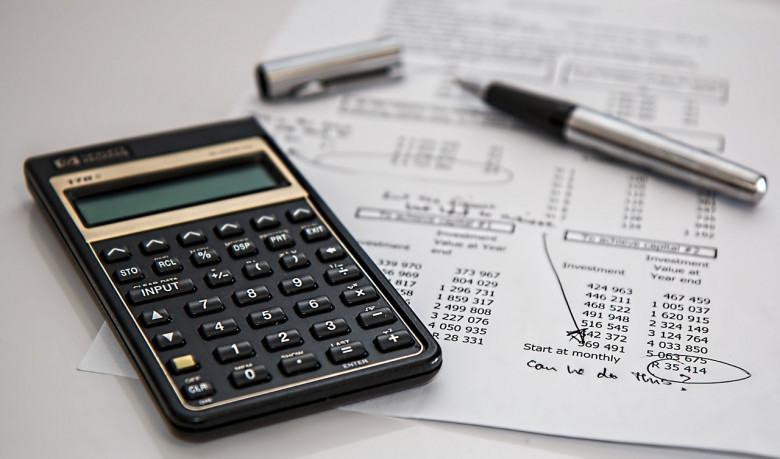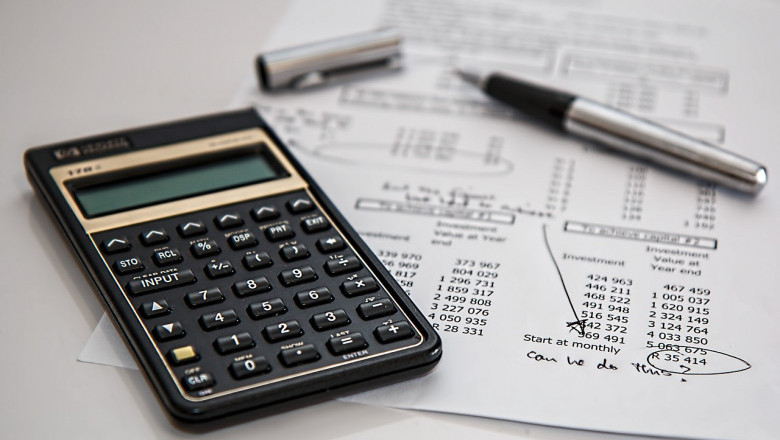views
Tax season can be stressful, especially when you're trying to figure out the best way to lodge your return and potentially maximise your refund. Many Australians wonder whether hiring a personal income tax accountant is worth the cost, or if DIY tax software can do the job just as well. The answer? It depends—on your financial situation, confidence level, and how complex your tax return is.
In this article, we’ll break down the differences between working with a personal income tax accountant and filing your tax return yourself. We’ll explore what each approach entails, the costs involved, the potential savings, and which option is more likely to get you a bigger refund.
Understanding the Tax Landscape in Australia
The Australian tax system is designed to be accessible, but it isn’t always simple. With frequent updates to tax laws and deductions, staying current can be overwhelming for the average taxpayer. Each year, thousands of Australians miss out on deductions they could have claimed—just because they didn’t know about them.
That’s where choosing the right approach to tax lodgement matters. Whether you go the DIY route or consult a tax accountant online, your refund depends largely on how well you understand what you’re entitled to claim.
What Does a Personal Income Tax Accountant Do?
A personal income tax accountant is a qualified professional trained to navigate tax laws, maximise deductions, and ensure accurate filings. They can identify work-related deductions, investment write-offs, and other offsets you may not be aware of.
Moreover, these accountants stay updated on legislative changes, so you don't have to. Their role is to legally and ethically minimise your tax liability while ensuring your return complies with the Australian Taxation Office (ATO) requirements.
When you work with a personal income tax accountant, you gain access to expertise that goes beyond just lodging a return—they offer strategy, foresight, and tailored advice.
The DIY Tax Filing Approach: Simpler Isn’t Always Better
Using ATO’s myTax platform or third-party DIY tax software may seem cost-effective and convenient. It’s a great option for those with straightforward tax returns, such as individuals with a single source of income and no investments or complex deductions.
However, the DIY approach assumes you understand the nuances of tax law. That includes what deductions apply to your job, how to claim them, and how to ensure your records meet ATO standards. Mistakes, even unintentional ones, can result in penalties or lost refunds.
While DIY tax may save money upfront, it can cost you more in missed deductions or audits if your return isn’t accurate or comprehensive.
Which Option Gets You a Bigger Refund?
At the heart of this comparison is a simple question: which method gets you more money back?
A skilled personal income tax accountant is trained to look beyond the basics. They can help you claim often-overlooked deductions related to home offices, vehicle usage, professional development, and more. For individuals with multiple income streams, investment properties, or business income, the benefit of professional guidance can be substantial.
On the other hand, if you’re well-versed in your entitlements and your tax situation is simple, DIY tools might suffice. But even then, the risk of missing something important looms.
The bottom line? The more complex your finances, the more a tax professional can likely boost your refund.
Cost Comparison: Is the Extra Spend Justified?
A major deterrent to hiring a personal income tax accountant is cost. But it’s important to remember that accounting fees are generally tax-deductible, meaning you’ll see some of that expense returned the following year.
Fees for DIY tax software range from free to around $100, depending on the features. Meanwhile, professional tax services can start at $150 and go up based on the complexity of your return.
The key consideration is return on investment. If a tax professional finds even a few hundred dollars in extra deductions, their fee could pay for itself—and then some.
Tax Accountant Online Services: The Modern Middle Ground
Technology has changed the game. With services like Accountants Direct, you can now consult a tax accountant online from the comfort of your home.
These services blend convenience with professional advice, offering personalised tax support without the need for in-person appointments. You upload your documents, answer some questions, and let the professionals do the rest.
This approach suits busy individuals or those who want expert guidance without the traditional office visit. It also offers greater peace of mind compared to pure DIY tools.
Who Should Choose DIY Tax Lodgement?
DIY tax filing is best suited to individuals with very basic financial circumstances. If you’re a student, have only one job, and no investment income or deductions, DIY could be a viable choice.
It also appeals to people who enjoy learning about tax law or want to have full control over their finances. However, that control comes with responsibility—you must ensure everything is correct and supported by documentation.
Still, many taxpayers who initially try DIY often switch to professionals after experiencing the complexity involved or receiving smaller-than-expected refunds.
Common Mistakes in DIY Tax Returns
One of the biggest pitfalls of DIY tax returns is misunderstanding or overlooking deductions. Many people incorrectly claim items without receipts or fail to claim legitimate expenses because they don't know they’re eligible.
Other common mistakes include incorrect data entry, claiming the wrong work-related expenses, or forgetting to include income from side gigs or investment sources.
These errors can trigger ATO audits or lead to smaller refunds. In contrast, a personal income tax accountant knows exactly what to look for and can prevent costly errors before they occur.
The Case for Hybrid Tax Filing Solutions
For those who like to be hands-on but still want expert oversight, hybrid models offer the best of both worlds. You start by entering your basic information, and a tax professional reviews your return before submission.
These models, often found in tax accountant online services, allow you to save time and money while still having the peace of mind that comes from a second set of expert eyes.
Hybrid solutions are also great for families, freelancers, and property investors who may be comfortable with some parts of their tax but need clarification on others.
Final Verdict: Let Your Tax Situation Decide
Choosing between a personal income tax accountant and DIY tax tools depends largely on your individual situation. If your tax affairs are basic, and you’re confident in your knowledge, DIY might work well. But if you want to ensure every possible deduction is claimed and reduce your chances of errors, professional help is a wise investment.
In today’s digital world, you don’t even need to leave your house to get expert advice. Whether you work with a personal income tax accountant in-person or consult a tax accountant online, your goal should always be the same: accuracy, compliance, and a maximised refund.
So, before you decide how to file this year, take a moment to weigh your options. Your wallet might thank you later.















Comments
0 comment